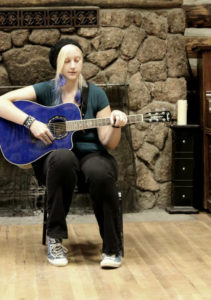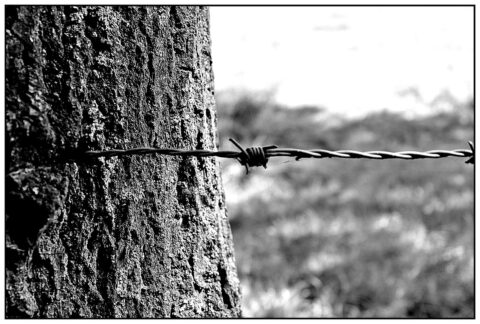Editorial Note: The following is reprinted with permission from Eleanor Skelton’s blog. It was originally published on September 23, 2014.
“We’re talking about anger here, Fraser, a human emotion.
Are you human? Because if you are, human beings feel things, okay?
They feel anger, they feel love, they feel lust and fear, and sometimes,
and I know you don’t want to hear this, sometimes they even cry.”
– Ray, Due South (2.17), “Red, White, or Blue”
My wall shattered one morning.
I was merging onto I-25 early on a gray Monday in January 2012 to head to campus.
The weekend before, my family had been out of town and I’d watched some brand-new Faith Lessons by Ray VanderLaan, a Biblical archaeological DVD series, and sobbed for the first time in months at the idea of radical love, acceptance even when I failed to measure up. That I was worth love simply because I was alive.
And then Switchfoot’s song “Dare You to Move” came on 103.1 WAY-FM. I lost it.
I’d made a pact against crying around the age of 8 or 9. Crying showed vulnerability and weakness, neither of which I felt safe exposing around my family or church members. I prided myself on my refusal to cry at Passion Plays or sad movies. My mom would recount the entire Easter story with A Beka Bible flashcards, depicting the scourging in graphic detail. She cried. Not me.
I could hold it in when no one else could. I told myself over and over: “I am ice. Ice does not melt.”
I did Elsa’s whole “Conceal, don’t feel” thing before it was cool.
Well. Then I couldn’t cry at all. Even in private.
Most of my teen years were spent reversing the choke hold I’d imposed on my tears. And halfway through college, the rest was crumbling. “All the walls you built up / Are just glass on the outside / So let ’em fall down / There’s freedom waiting in the sound.” (Tenth Avenue North)
 I described the experience to my friend Elraen later that cold wintry week on chat during one of our all-nighters.
I described the experience to my friend Elraen later that cold wintry week on chat during one of our all-nighters.
I said, “I wasn’t really expecting it. It was one of those times when Jesus really gets your attention, and you realize just how much He really loves you, and you cry your eyes out. Somehow…I’d had two experiences like this in high school…but nothing quite like that since late 2005.”
“I guess I thought maybe experiences like that were over in my life.”
Elraen knew what I meant. She responded, “I hope that more and more God can bring moments like that into your life, breaking through the walls that have been put up to shield yourself from hurt […] I hope that healing comes and drives deeper and deeper into your life. Because He DOES love you. So, so much, no matter what [people] say about you or accuse you of — His love does not ever change.”
My soul was reawakening, but I’d have to fight my tendency to lock up. Numbness felt like being a ghost in my own existence, but at least it kept pain at bay.
The next few months, I felt like this little bubble of hope protected me, which I needed for the “coming of age” phase of my life story.
I still questioned the wisdom of feeling over the next two years. Doesn’t it take more energy than necessary? In late high school, when I read through all four Gospels twice, one detail stuck with me.
Jesus is about to be crucified. He is offered a drugged wine to dull the pain. He refuses.
“And when they came to a place called Golgotha (which means Place of the Skull), they offered him wine to drink, mixed with gall, but when he had tasted it, he would not drink it.” (Matthew 27:33-34, ESV)
My Nelson study bible explained that “Jesus refused it; He wanted to drink His cup of suffering fully aware of all that was happening.”
From a logical perspective, this seems incredibly stupid, like refusing anesthesia before surgery. But often love isn’t logical.
If you wanted to identify with someone else completely, to live in their skin, you’d choose the full emotional and physical repercussions. Not out of cold obligation. With fire in your chest.
I know. Because I chose this once. I wanted to know the everyday struggles of my friend in a wheelchair. So I didn’t take the gloves she handed me or the foam seat cushion. I wanted noodly arms and a sore butt at the end of the day, because it would be a more honest reflection of her experience.
And this is how I realized that really choosing to live, embracing love and peace, grief and pain without censorship, requires a bravery I was still discovering.
Part three of this series will be about how I learned to be honest about my anger.




